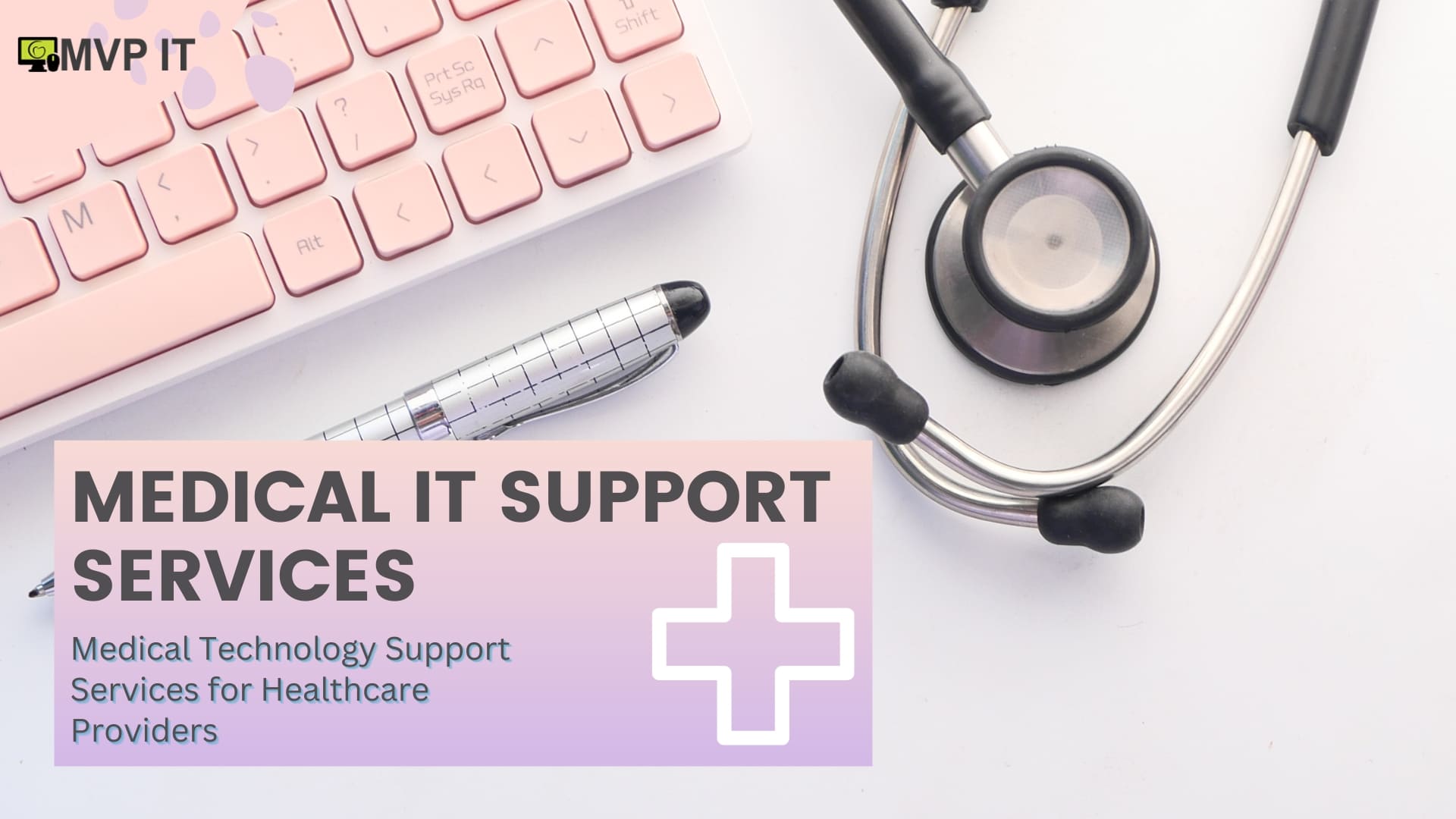In the rapidly evolving landscape of healthcare, technology plays a pivotal role in delivering efficient and effective patient care. Medical IT support services encompass a range of solutions tailored to meet the unique needs of healthcare providers, ensuring seamless operation of their IT infrastructure.
Medical technology support services are a cornerstone of modern healthcare delivery. They encompass a diverse array of offerings designed to assist healthcare providers in effectively leveraging medical technology to enhance patient outcomes and operational efficiency.
Medical IT support services encompass a range of solutions tailored specifically to the unique needs of healthcare organizations. From maintaining secure networks to implementing electronic health records (EHR) systems, these services are designed to optimize operational efficiency and enhance patient care delivery.
Role of Medical IT Support Services
Medical technology support services encompass a wide range of solutions designed to address the unique needs of healthcare providers. These services include:
IT Infrastructure Development
Experienced IT professionals collaborate with healthcare organizations to design and implement robust infrastructure solutions tailored to their specific requirements. This includes hardware procurement, network setup, and software installation to support critical healthcare applications.
Cybersecurity Solutions
To mitigate the risk of data breaches and cyber attacks, medical technology support services offer comprehensive cybersecurity solutions. This includes regular security audits, threat monitoring, and employee training to enhance awareness of cybersecurity best practices.
Data Backup and Disaster Recovery
In the event of a data breach or system failure, timely recovery is essential to minimize downtime and prevent loss of critical information. IT support services implement robust backup and disaster recovery solutions to ensure that data can be quickly restored in case of an emergency.
24/7 Helpdesk Support
Healthcare providers operate around the clock, and so does their need for technical assistance. IT support services offer 24/7 helpdesk support, ensuring that assistance is available whenever it’s needed, regardless of the time or day.
Types of Medical Information Technology Support Services
Hardware Support
Hardware support involves the maintenance and troubleshooting of physical IT components such as servers, workstations, medical devices, and networking equipment. This includes tasks like equipment installation, upgrades, repairs, and ensuring compliance with regulatory standards.
Software Support
Software support focuses on the management and optimization of healthcare software applications, including EHR systems, billing software, practice management tools, and security solutions. It involves software installation, updates, customization, and user training to maximize efficiency and data security.
Network Support
Network support encompasses the design, configuration, and maintenance of healthcare IT networks, including wired and wireless infrastructure, VPNs, firewalls, and data backup systems. This ensures seamless connectivity, data transmission, and protection against cyber threats.
Maintenance and Repair Services
Ongoing maintenance contracts to ensure the proper functioning of medical devices, along with prompt repair services in the event of malfunctions or breakdowns.
Benefits of Utilizing Medical Technology Support Services
Improved Patient Care
By streamlining administrative tasks and providing timely access to patient information, medical technology support services enable healthcare providers to deliver more personalized and effective care to their patients.
Enhanced Efficiency and Productivity
Efficient IT infrastructure and streamlined workflows result in improved efficiency and productivity within healthcare facilities. By automating routine tasks and reducing manual paperwork, healthcare providers can focus more on patient care and less on administrative burdens.
Cost Savings
While initial investments in technology support services may seem daunting, the long-term benefits far outweigh the costs. By reducing errors, minimizing downtime, and optimizing resource utilization, medical technology support services help healthcare providers achieve significant cost savings in the long run.
Compliance with Regulations and Standards
Adherence to regulatory requirements such as HIPAA ensures patient data security and confidentiality, safeguarding healthcare providers from potential penalties and liabilities.
Challenges Faced by Healthcare Providers
Lack of IT Infrastructure
Many healthcare facilities struggle with outdated IT infrastructure, hindering the adoption of new technologies and slowing down administrative processes.
Cybersecurity Concerns
With the increasing digitization of medical records, cybersecurity threats pose a significant risk to patient data security. Healthcare providers must invest in robust cybersecurity measures to protect sensitive information from unauthorized access or breaches.
Integration of New Technologies
Integrating new technologies into existing healthcare systems can be complex and time-consuming. Healthcare providers require expert guidance and support to ensure a smooth transition and maximize the benefits of new technologies.
Choosing the Right Medical Technology Support Providers
When selecting a medical technology support provider, healthcare organizations should consider several key factors to ensure they receive optimal service.
Expertise and Experience
Look for providers with extensive experience in healthcare IT support and a track record of successful implementations. Verify their certifications, industry partnerships, and client testimonials to gauge their expertise and reliability.
Customized Solutions
Every healthcare organization is unique, with its own set of challenges and priorities. Choose an IT support provider that offers customized solutions tailored to your specific needs, rather than one-size-fits-all packages.
Scalability and Flexibility
As your healthcare organization grows and evolves, so too should your IT infrastructure and support services. Select a provider that offers scalable solutions and flexibility to adapt to changing needs and technologies.
Customer Support and Response Time
Prompt and reliable customer support is essential for resolving issues quickly and minimizing downtime, so choose a provider known for their responsiveness and accessibility.
Future Trends in Medical Technology Support Services
The future of medical technology support services is marked by continued innovation and advancements that promise to further enhance healthcare delivery.
- Telehealth and Remote Support: With the growing popularity of telemedicine, remote support services will play an increasingly important role in providing timely assistance to healthcare providers regardless of location.
- Artificial Intelligence and Predictive Maintenance: AI-driven predictive maintenance algorithms will enable proactive identification of potential issues before they occur, minimizing downtime and optimizing equipment performance.
- Enhanced Cybersecurity Measures: As cyber threats continue to evolve, medical technology support providers will focus on implementing robust cybersecurity measures to safeguard patient data and prevent unauthorized access.
Conclusion
In conclusion, medical IT support services play a vital role in empowering healthcare providers to navigate the complexities of modern healthcare delivery effectively. By outsourcing IT support, healthcare organizations can optimize their IT infrastructure, enhance data security, and focus on delivering quality patient care. Embracing emerging technologies and partnering with experienced IT support providers are essential steps for healthcare providers seeking to thrive in an increasingly digital healthcare landscape.









